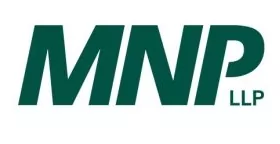Financial statements serve many purposes. They are used for
internal management or to demonstrate to an external party the
financial position of a company. In either case, they are designed
to provide useful information to businesses. Proper preparation of
financial statements is critical. There are several steps in
preparing financial statements that need to work together
cohesively in order to deliver reliable financial
information.
First, is the process of capturing transactional data. If the
system is not user-friendly or is difficult to use, there is a
higher risk that the data will be incomplete or erroneous.
Second is codification of the transactional data. For example: is
it being presented in the right place? If not, misinformation can
lead to poor decision making.
Then there is the competence of the person reviewing the data and
ensuring that all is accounted for correctly and nothing is missed.
If this person has no professional training or lacks experience,
they can hinder the process of gathering accurate
information.
And finally, there is the involvement (or lack thereof) of an
external professional accountant. This step is key to ensuring that
the entire process was properly performed, as it is the last check
and balance to ensure that all the steps that came before were
properly completed.
How useful is a set of financial statements when their preparation
does not involve a qualified accountant? A chartered professional
accountant (CPA) must go through several years of technical
education and have a minimum amount of practical experience prior
to obtaining their license to practice public accounting. As such,
they are trained both from a theoretical perspective and have
experience with practical applications to be in a position to add
credible value to the accuracy and reliability of financial
statements. Furthermore, CPAs are required to attend a minimum
number of education hours annually in order to ensure they are
always up to date in their knowledge and have kept abreast of
technical developments in the industry.
A CPA's contribution to the financial reporting process allows
users, such as a businessperson interested in buying a company, or
an investor considering owning a stake in a company, to gain
comfort that the numbers they are analyzing or information they are
absorbing is reliable. How can anyone imagine making significant
investment or lending decisions without such assurance?
A CPA can provide comfort to financial statements by being involved
internally at the company during the information gathering and
review process, or by providing an opinion on the financial
statements as an external party.
Reports will describe the degree of assurance being provided on the
financial statements that follow. An auditor's report will
provide positive assurance based on the audit procedures performed
on the financial information, whereas in a review engagement
report, the accountant will provide negative assurance. The
difference between these two opinions lies mainly in the degree of
comfort. Where an auditor positively states compliance with a
framework, an accountant in a review engagement states that nothing
has come to their attention to lead them to believe the statements
are not in compliance with a specific framework. Therefore, an
audit report provides a greater degree of comfort. The involvement
of the CPA is critical in ensuring reliable financial information,
no matter the use of the financial statements.
This article was originally published in the August-September 2014 issue of Premières en affaires magazine.
The content of this article is intended to provide a general guide to the subject matter. Specialist advice should be sought about your specific circumstances.

